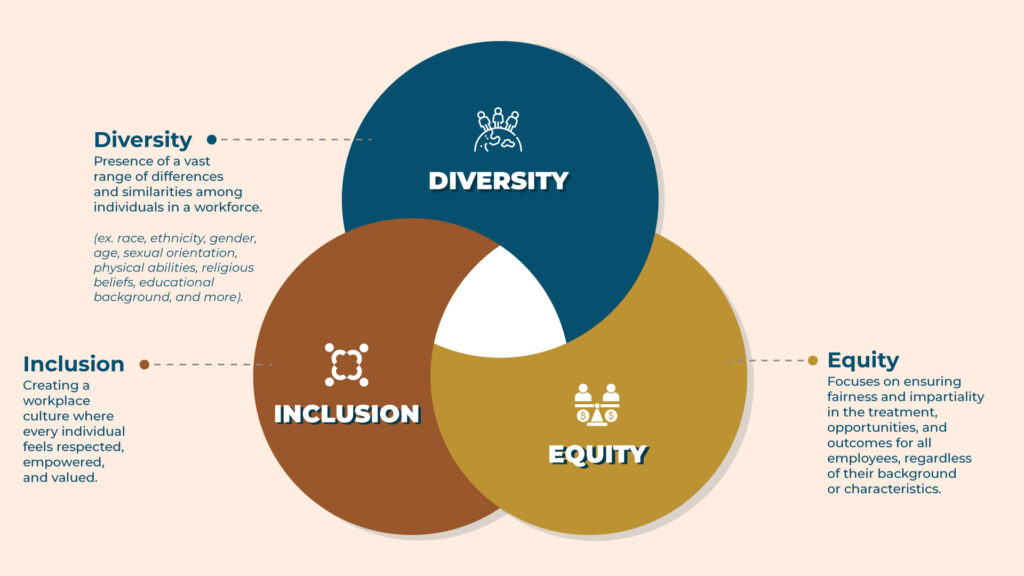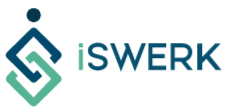
Introduction
Businesses that recognize and embrace diverse perspectives are better able to add value, serve consumers, support employees, and solve challenges.
Over the past decade, the demographics of the global workforce has changed significantly. Thus, diversity, equity, and inclusion are more crucial than ever for companies to succeed.
Let’s delve into Workplace Diversity, Equity, and Inclusion (DE&I) and explore how remote work promotes a more level playing field for all types of employees in a business.
What is Diversity, Equity, and Inclusion (DE&I)?
Diversity, Equity, and Inclusion (DE&I) refers to the initiatives aimed at increasing workplace participation and representation from underrepresented groups.
Employee diversity and inclusion entail valuing differences while protecting them from prejudice.
It emphasizes representation, justice, and equal chances for all genders, ethnicities, nations, sexual orientations, faiths, disabilities, and ages.
Diversity refers to the diversity or variety of the workforce, whereas equity promotes fair methods, treatment, and opportunities for all employees, resulting in an equal playing field.
Inclusion denotes a sense of belonging in which all employees are respected, empowered, and valued. Inclusivity should be ingrained in daily operations and workplace culture so that employees feel comfortable being themselves.

DE&I policies and programs are critical for creating a friendly workplace culture that provides opportunity for employee growth and development.
Companies that are diverse, fair, and inclusive are better positioned to adapt to problems, attract top personnel, and meet the requirements of a varied consumer base.
Benefits of DE&I in the Workplace
Below are some of the advantages when businesses promote Diversity, Equity, and Inclusion in their organization.
- Wider Access to Global Talent Pool
- Enhanced Financial Performance
- Better Innovation and Decision-Making
- Improved Employee Engagement and Satisfaction
- Higher Employee Retention Rate
- Competitive Business Advantage
- Fosters a Sense of Belonging
- Reaches a Wider Audience
Here are some statistics that show the importance of promoting diversity and inclusion in the workplace.
- Diversity management increases income by 19%.
- Companies with racial and cultural diversity perform 35% better.
- Companies with females in top management had higher returns.
- Companies employing an equal number of men and women generate up to 41% more revenue.
- Organizations that prioritize inclusivity are more engaged, innovative, and successful.
- Companies that prioritize inclusivity are up to 120% more likely to meet their financial targets.
According to Darren Kimball, practicing diversity and inclusion is not just the right thing to do, but it also boosts your business.
Diversity and inclusion provide a secure environment for your employees to offer input on corporate culture. In a domino effect, a safe and healthy work environment drives innovation and increases productivity resulting in financial growth and stronger branding.
How Remote Work Contributes to Diversity and Inclusion

Remote work can level the playing field for those facing greater barriers to career success, such as people from working-class families or those living in distant locations, according to a Forbes article.
Remote work has transformed talent acquisition and fostered a more diverse workforce, benefiting international professionals, working parents, caregivers, and individuals with disabilities.
This shift has significantly impacted Diversity, Equity, and Inclusion (DEI) initiatives, contributing to company growth and employee satisfaction.
Benefits of Remote Work for DE&I
Fostering inclusiveness means providing equal opportunities to all workers, regardless of their location or background.
Here’s what happens when companies incorporate remote work.
- Increased access to a diverse talent pool
Remote work helps businesses to access diverse talent without regard to geography which leads to a more diverse workforce. - Flexibility for underrepresented groups
Individuals with caregiving duties, people with disabilities, and those from underrepresented communities gain flexibility, making the workforce more inclusive and allowing them to be involved more fully in professional pursuits. - Inclusive work environment
Removal of physical office obstacles promotes inclusivity for individuals with disabilities. In addition, remote work can create a more inclusive environment at work by allowing for greater geographic diversity and accommodating unique schedule or caregiving needs.
- Increased access to a diverse talent pool
As the workplace evolves, businesses recognize the importance of inclusive remote work environments.
However, companies that offer remote jobs also face some issues that must be addressed.
| Challenges | Business Solutions |
| Proximity bias (It occurs when a person in a position favors or treats coworkers closer to them.) | Businesses must be intentional in implementing strategies to communicate and build relationships. |
| Isolation | Companies should foster a sense of belonging and connection among remote employees through virtual social interactions, employee recognition, and training programs. |
| Lack of face-to-face time | Highlights the role of video communication in enhancing understanding and reducing miscommunications. |
| Lack of feedback | Businesses must promote the need for real-time, consistent performance evaluation and coaching. |
As a result, firms should take proactive steps to guarantee that all team members can thrive in remote work situations, fostering a sense of community and ensuring that diversity remains an important component of the workforce.
Foster a Diverse and Inclusive Culture with iSWerk
At iSWerk, we understand the value of workplace diversity and inclusion. Our remote staffing solutions are intended to help businesses access a more diversified talent pool and foster an inclusive work environment.
iSWerk’s commitment to a diverse and inclusive team aims to contribute to a more balanced workforce, potentially resulting in a substantial revenue increase and a workplace that reflects our dedication to fairness and equality.
How iSWerk integrates a diverse and inclusive remote culture:
- Ensures clear communication and direction on organizational standards for virtual behavior
- Utilizes modern technology, such as cloud computing and video tools, to eliminate location barriers and improve accessibility for remote employees
- Develops remote-specific D&I policies with measurable goals and regular assessments
- Promotes diversity through intentional recruitment and hiring practices
- Encourages informal interactions, company-wide engagement activities, and empathetic leadership to foster inclusivity
Final Thoughts
Remote work can have significant impact on workplace diversity and inclusion by increasing access to a broader talent pool, providing flexibility to underrepresented groups, and establishing an inclusive work environment.
By partnering with iSWerk, companies can take advantage of these benefits and contribute to the advancement of diversity, equity, and inclusion in the workforce.
Book a NO-OBLIGATION CONSULTATION and explore how iSWerk can leverage your business today in fostering diversity and inclusion.
